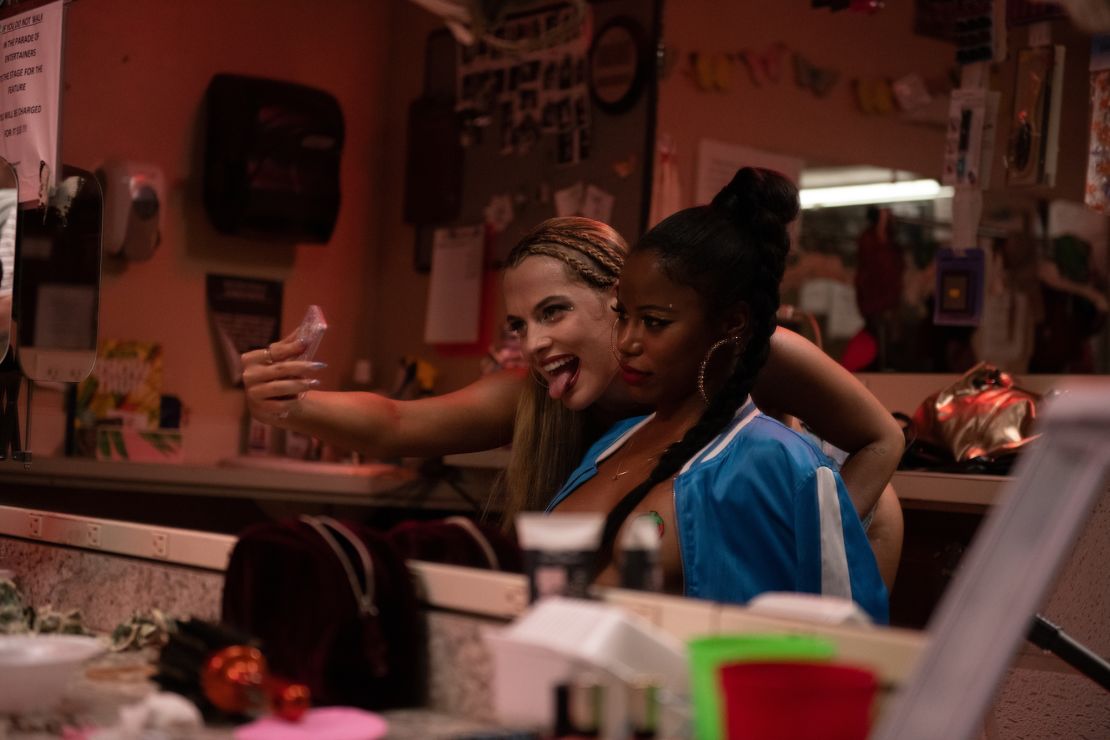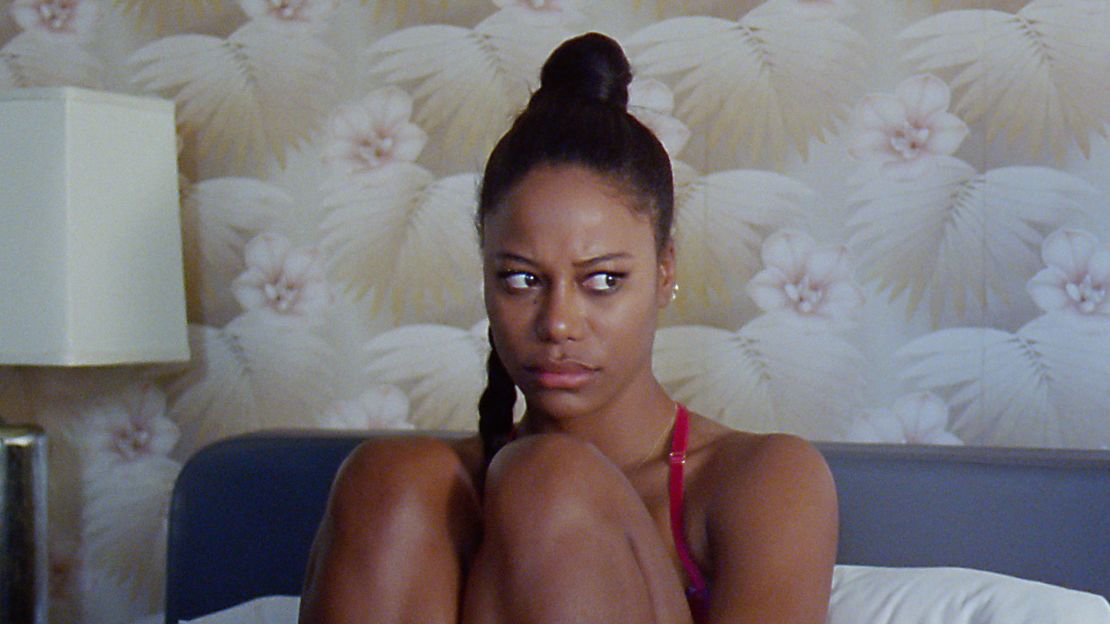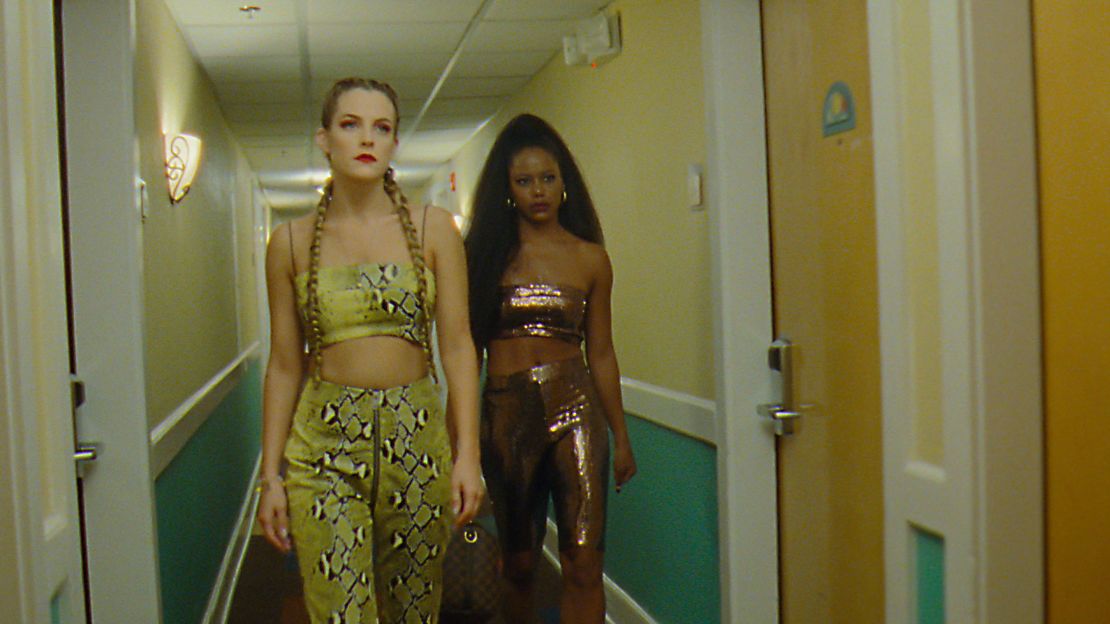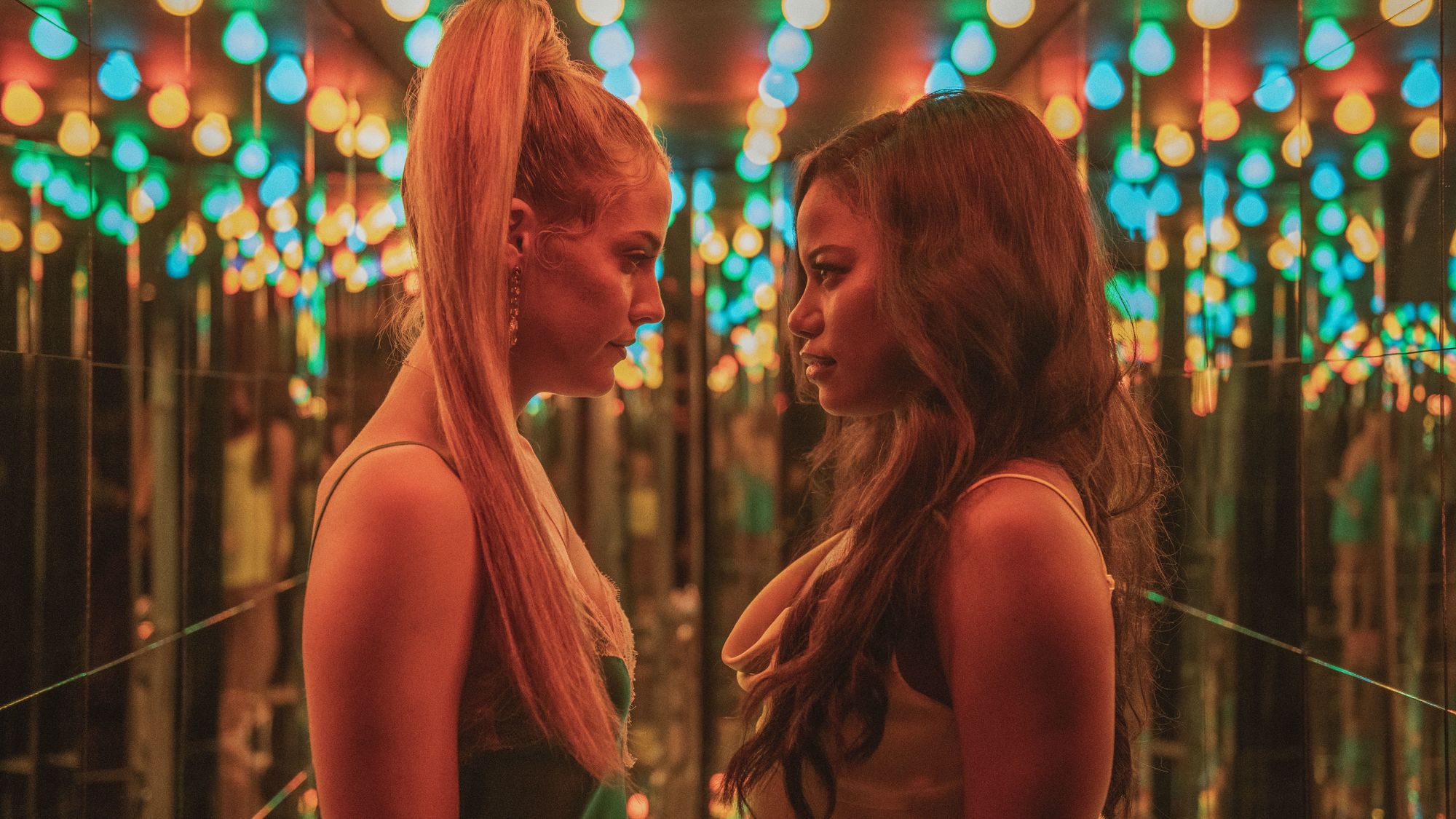Editor’s Note: Keeping you in the know, Culture Queue is an ongoing series of recommendations for timely books to read, films to watch and podcasts and music to listen to.
If classic genres are like roadmaps, the new movie “Zola” – steered by two exotic dancers who go on a whirlwind weekender in Florida – is what happens when you turn off the navigation. Directed by Janicza Bravo, “Zola” starts out as an impromptu American road trip and descends into chaos.
The titular protagonist, played by Taylour Paige, is a self-possessed Black woman waitressing in Detroit when she encounters Stefani, played by Riley Keough, a White girl with a heavy “blaccent” (Bravo’s words) who seems warm if a bit “fruit loops,” as Zola notes to another waitress. But they soon bond over dancing, and Stefani entices Zola into an impulsive trip down to Florida to make bank at a nightclub.
“At its core, it is a story about friendship, and it’s a story about fast friendships specifically,” Bravo said in a video interview. It’s about “those moments in our lives where we found ourselves falling in love with other women really intensely.”

Joined by Stefani’s anxious boyfriend (Nicholas Braun) and shady roommate (Nasir Rahim), Zola soon finds herself in the queasy fluorescent lighting of a seedy Gulf Coast motel and a less-than-impressive strip club. (One gawking spectator tells her she looks like Whoopi Goldberg as he stuffs cash into her thong.) As the night unfolds, Zola discovers her road trip companions aren’t who they seem, and Stefani has lured her into a precarious situation that gets wilder by the hour.
Yet the A24 film isn’t a fictional tale – it’s an adaptation from a series of viral tweets that recount just such a weekend experienced by Detroit native A’Ziah “Zola” King. “Y’all wanna hear a story about why me & this b***h here fell out?” King wrote in October 2015 in the first of 148 tweets that became known as “The Story.” “It’s kind of long but full of suspense.”
An uncanny, unsettling tale
Bravo’s take on King’s story has parallels to the unending, surreal nights of films like Martin Scorsese’s “After Hours” and Stanley Kubrick’s “Eyes Wide Shut.” In other hands, it could have been close kin to Harmony Korine’s glossy girls-gone-wild flick “Spring Breakers” (and in fact, James Franco, who played the film’s hustler, was reportedly set to direct “Zola” early on). But Bravo handles the movie’s source material with a particular sensitivity: “Zola” isn’t the story of a narrator along for a crazy ride, but a woman telling a traumatic story through the shield of a dark comedy.

Seeing King’s ability “to process trauma with humor as a vehicle,” Bravo said, is “probably where I most saw myself because that’s how I use humor. Humor is my greatest and strongest weapon, and I felt this 19-year-old was telling me…that without it, she wouldn’t have made it out.”
“Zola” is also a refreshing addition to the stories of American road trips, which are often told by White men, including Jack Kerouac in literature, Robert Frank and William Eggleston in photography, and Todd Phillips in buddy comedy films.
But in this case, the road trip experience isn’t romanticized for Zola. The unease with her surroundings begins as they drive through the South, and she spots a Confederate flag blowing ominously in the wind. Her dynamic with Stefani becomes increasingly fraught as Stefani oscillates with ease between playing victim and victimizer, appropriating Black beauty and style and language as it suits her but wielding her Whiteness at the snap of a finger.

“There is a portion of the audience that is going to arrive at this movie unconsciously rooting for (Stefani),” Bravo said. She said she had to consider how to present and position the two lead characters. “When we arrive at the start line, where are we setting (Zola)? And where are we setting (Stefani)?”
Zola is the only sane person on the journey, and like many characters who have been suckered into pandemonium, she just wants to get back home. And despite the film’s willingness to take creative risks and to defy genres, Bravo says some of the approach is still a classic comedy.
“(Zola) is very much the straight man where (Stefani) is the menace or the clown or the buffoon,” Bravo said. “Whenever there is chaos or unsteadiness, you should always be able to look to your straight man to ground you, and to recalibrate for you.”
Add to Queue: American road trips, rewritten
Read: “A Parallel Road” by Amani Willett (2020)
In this photo book, using archival and contemporary images, photographer Amani Willett weaves together an alternate view of the glorified American road trip, showing how, over the course of 85 years, the seemingly carefree rite of passage has been marked by violence for Black Americans.
Watch: “The Living End” (1992)
This film by Gregg Araki – considered an early title of the New Queer Cinema genre – follows two HIV-positive gay men who embark on a dangerous Thelma-and-Louise-like road trip when they have nothing left to lose.
Read: “Girl Pictures” by Justine Kurland (2020)
Photographer Justine Kurland challenges the “masculine myth” of the North American frontier with this body of work, photographed in the late 1990s and early ’00s, of fictional teenage girls forming their own utopia in the wilderness.
Watch: “American Honey” (2016)
Director Andrea Arnold’s “vagabond” film, co-starring Keough, is about a girl who runs away from home with a traveling group of hard-partying teens who sell magazines door-to-door. Bravo points to it as one of the reasons she wanted Keough for “Zola.”
Watch: “Queen & Slim” (2019)
After a traffic stop goes awry during a Black couple’s first date, they take to the road in this romantic crime drama written by Lena Waithe and directed by Melina Matsoukas.
